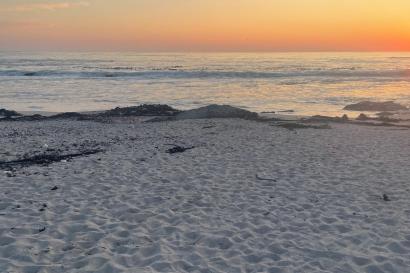
Walking through the muddy streets of Egoli, I try to avoid random patches of water in an attempt to protect my tennis shoes- clearly, I’m not properly dressed. Egoli, an informal settlement located in the outskirts of Cape Town is home to thousands of displaced individuals. We’re here for a couple of days to continue the Health I.D project intended to gather medical history of the residents.
Being in the first-world for so long normalizes us to its luxuries. We forget that even having a dry pair of slippers is a privilege not promised to the bottom billion. Although I always like to pride myself for being hyper-conscious of this fact, being in Egoli was still an eye-opening experience. At the end of the day what stays with you is not its damaged environment rather it’s the sheer determination of its people and the kindness they offer. Perhaps this is what categorizes them as people, their willingness to give what they still have despite the immense daily challenges they face.
From an initial survey of Eogli it quickly becomes obvious that there are problems. There are communities like this all around the world, masked and invisible in plain sight. It’s quite overwhelming in the beginning and teary eyes are not uncommon. But, for every problem I saw, I noted twice the number of solutions and most importantly the undying potential of the individuals that circulate here like life blood. It’s true that a community is as good as its people.
Take our Health-ID project as an example- although these people aren’t getting proper medical attention there is an initiative in place to address this issue. Similarly, the non-profit IkhayaLami is working to make technology more accessible to the people all in while promoting community engagement. These solutions view the residents of this disadvantaged area as a source of potential rather than passive aid recievers. By redirecting the power to the individual sustainability becomes possible quicker. This is how real change comes to life.
Time and again the concept of sustainability has come up during my stay at Cape Town. It really challenges the typical idea of foreign aid hand down and sits at the heart of community development. The same overwhelming states I felt initially has transformed into a sense of relief knowing that there are possible solutions that can be put in place, no matter how big the issue. Above all else, Cape Town has taught me about the choice of perspective, the idea that we can pick where we put our focus (a place from where everything grows).

Sangya Gyawali
<p>My name is Sangya Gyawali. I am a rising senior at the University of Pittsburgh and an Anthropology major and a Chemistry minor. I am an adventure enthusiast and a real foodie. I hope to foster my love for cultures and people this summer while studying abroad in Cape Town, South Africa. Join me as I capture new experiences from different perspectives through words and photos.</p>









